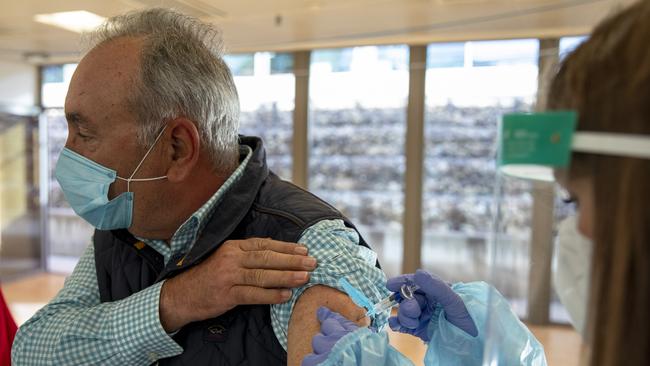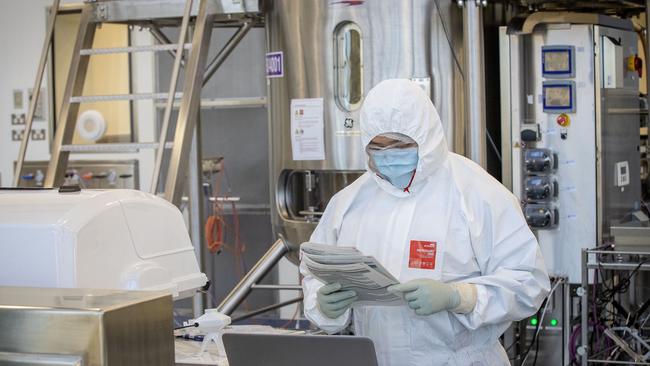New criteria changes who’ll get COVID-19 vaccine first
Australia’s population is expected to be divided into 12 age brackets for the much-anticipated rollout of the COVID-19 vaccine.
Coronavirus
Don't miss out on the headlines from Coronavirus. Followed categories will be added to My News.
Exclusive: Australia’s population is expected to be divided into 12 age brackets for the much-anticipated rollout of the COVID-19 vaccine.
News Corp Australia can reveal those aged over 70 will be the first to get the jabs, followed by those 65-70, with the rest of the population divided into five-year increment age groups.
The strategy is similar to that being employed in the United Kingdom and will mean young people keen to travel will have to wait until right near the end of the year for their shot.
It can also be revealed that people will have to queue 20 at a time to get their jab because the vaccine will be supplied in multi-dose vials rather than single doses.
Children under the age of 18 are unlikely to be vaccinated at all during 2021, News Corp has been told, because pharmaceutical companies are not seeking approval for use in younger people.

And the brand of vaccine you receive may differ depending on any health conditions you have and other factors.
The government will finalise who gets the vaccine and when in late January when it will publish the expert advice on the immunisation roll out plan.
This is when the expert advisory group will reveal which essential workers like police, emergency service workers and others are considered “essential workers” who will get priority access to the vaccine.
It remains the case that the first people to get the vaccine will be the nation’s 800,000 frontline health workers and those in aged care and at greatest risk of COVID-19.
Prisoners and others detention and those who guard them will also be among the first to be vaccinated because they are at greater risk from living in crowded conditions.
Today News Corp can reveal for the first time that the age group strategy will apply to those lower down the priority scale.
The government is expecting to have both the Pfizer and AstraZeneca vaccines available in time for the March roll out of the vaccine program.
Experts are reviewing trial data to determine whether one or other of the vaccines might be more suitable for the elderly, or those with health conditions than the other before deciding who is eligible for which shot.
GPs and nurses will deliver the vaccines at the commencement of the program so expert staff are on hand to deal with any adverse events such as the allergic reactions suffered by two nurses in the UK last week.

After further experience with the vaccines it may be possible for pharmacies to vaccinate younger and healthier people, sources told News Corp.
This will speed up access to the vaccine by increasing the number of places people can go to receive it.
Vaccination is likely to be essential for overseas travel with Qantas already planning to require a vaccination certificate for passengers on international flights.
The government is also considering whether to lift quarantine requirements on overseas travellers who can produce a vaccination certificate.
However, pharmaceutical companies will first have to prove their vaccines not only prevent COVID-19 but also stop transmission of the virus before this can happen.
More Coverage
Originally published as New criteria changes who’ll get COVID-19 vaccine first





